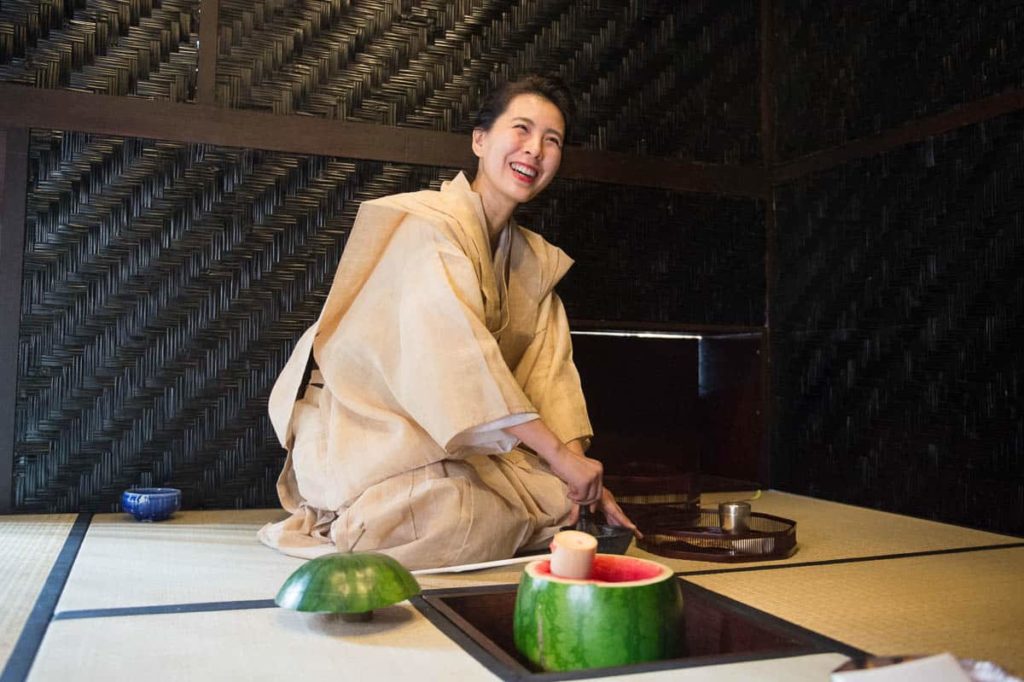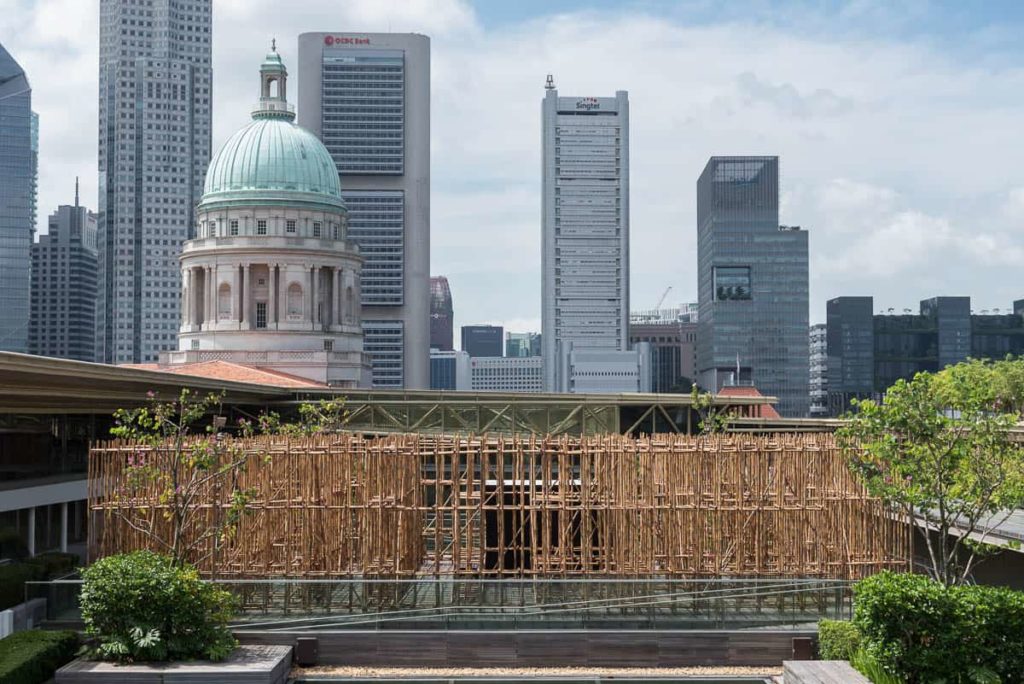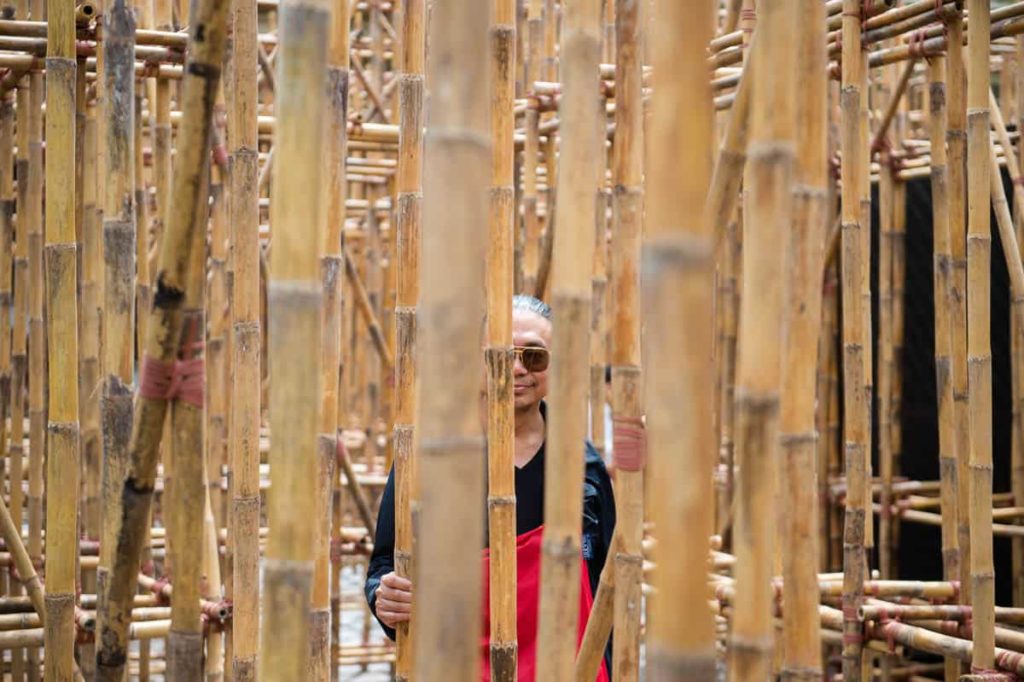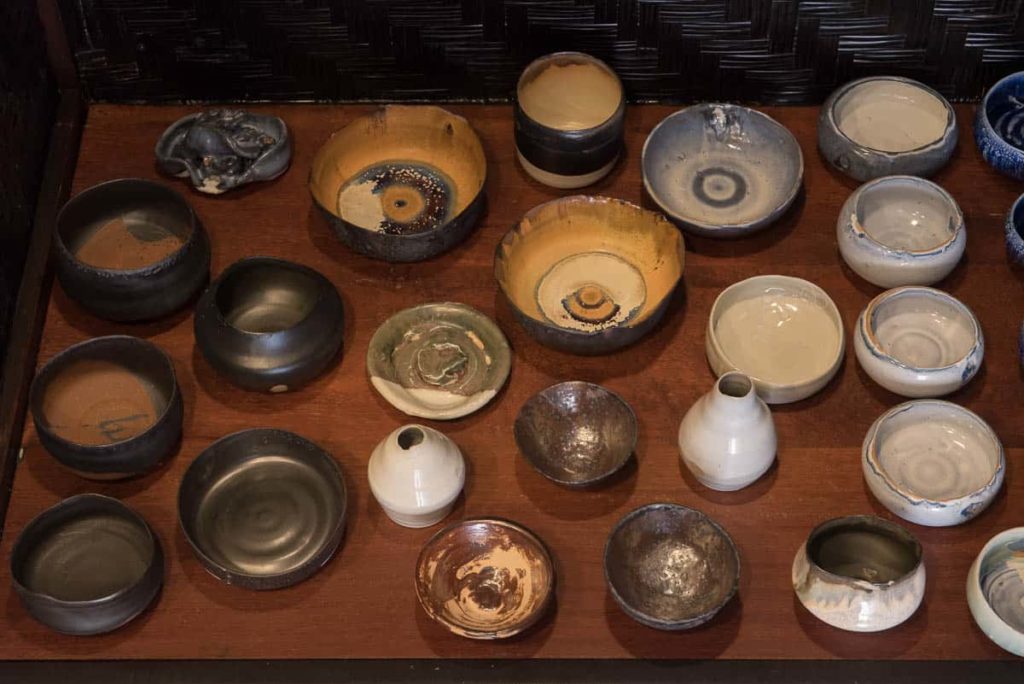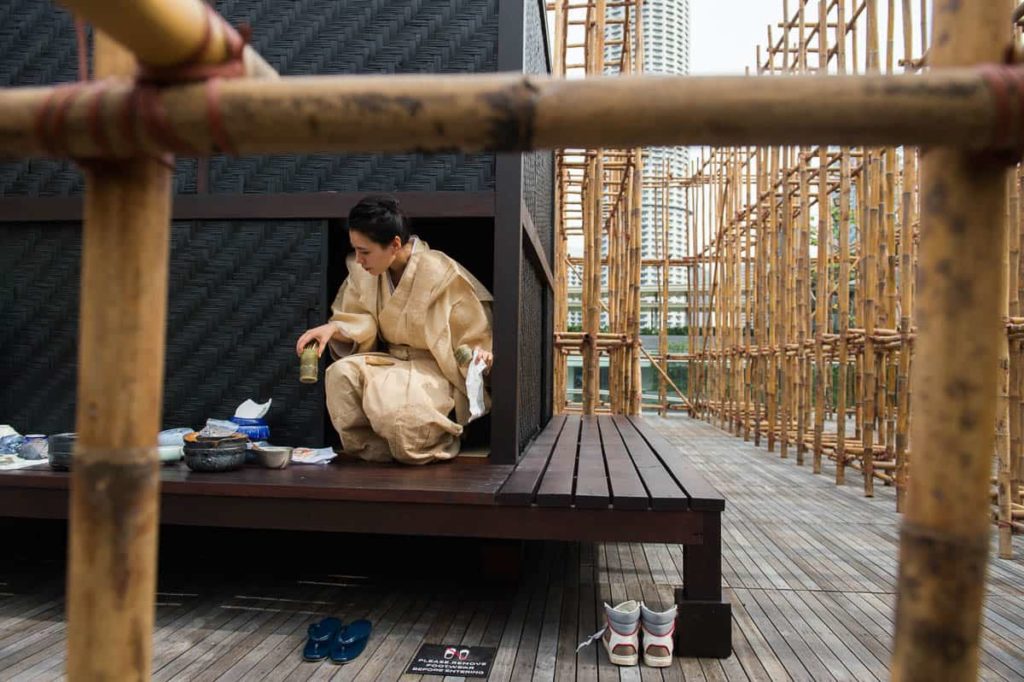- Mae Ueda introducing watermelon mixed with matcha for a tea ceremony suitable to steamy Singapore
- Spot the artist!
- Ceramics made by Rirkrit Tiravanija
The “relational” artist Rirkrit Tiravanija is known for relatively ephemeral performances, such as meals in galleries. His installation for Singapore’s National Gallery is a much more material-based work, involving bamboo scaffolding and tea bowls (made by himself in his Thailand, Berlin and New York studios). This offers a glimpse of our forthcoming Japan issue that will look at how these rituals give life to craft today.
Named untitled 2018 (the infinite dimensions of smallness), the immersive installation which stands at a towering four metres high, draws its inspiration from materials, craftwork and architecture from Asia. The maze references traditional hand-built bamboo scaffolding found across Asia, while the Japanese tea house evokes the rich culture of tea with its centuries-old ceremonies. Visitors are invited to navigate through the bamboo maze as they go in search of finding something special such as the wooden teahouse located at its centre, and along the way, encounter and interact with each other. This deceivingly simple concept continues Rirkrit’s artistic focus on participatory works that blur the line between art and its audiences, while leveraging his strength and inclination towards the gesture of hospitality. By devising and provoking human encounters in spaces that are embodied in architectural structures like the bamboo maze and teahouse, he encourages visitors to pause, make time and space to experience something new.
Mr Low Sze Wee, Director (Curatorial, Collectors and Education) of National Gallery Singapore, said “untitled 2018 is a testament of the Gallery’s mission to bridge the connection between art and the public, and cultivate an art-loving community. In working together with Rirkrit Tiravanija—one of the most important and influential contemporary artists of our time, who is richly informed by his own history and experience of Southeast Asia—we aim to present art made accessible and inclusive through its social setting, inspired by Asian culture, architecture and craft. It presents an experimental stage for people who are curious to discover the unknown, to reconnect with one another at a more direct and personal level. In addition to his work in the UOB Southeast Asia Gallery, this installation serves to showcase Rirkrit’s long and deep practice in the contemporary art field.”
This is Rirkrit’s second major solo project in Singapore. Having lived in various countries, his works reflect the constant negotiation between diverse cultures as he constructs communal environments that draw audiences to be part of his work. For example, one of his most iconic works in 1992, Untitled (Free) transformed spaces in museums and galleries worldwide into a place of communion where he served rice and Thai curry to visitors, thereby creating temporary but meaningful bonds between him and his audience. Complementing the installation is a diverse range of interdisciplinary public programmes including tea ceremonies by Japanese performance artist Mai Ueda, monthly tea ceremonies, Rirkrit Day with a colloquium, screening of the documentary on the making of the installation, and various performances.
The Ng Teng Fong Roof Garden Commission series invites one leading international artist each year to present a site-specific work that is inspired by Southeast Asia’s rich cultural heritage and complex histories from a contemporary perspective. The first commission was by Vietnamese-born Danh Vo (2016–2017). The Ng Teng Fong Roof Garden Gallery is made possible through a gift by Far East Organization.
National Gallery Singapore, presents Rirkrit Tiravanija’s largest bamboo maze installation at its Ng Teng Fong Roof Garden from 24 January 2018 to 28 October 2018.

